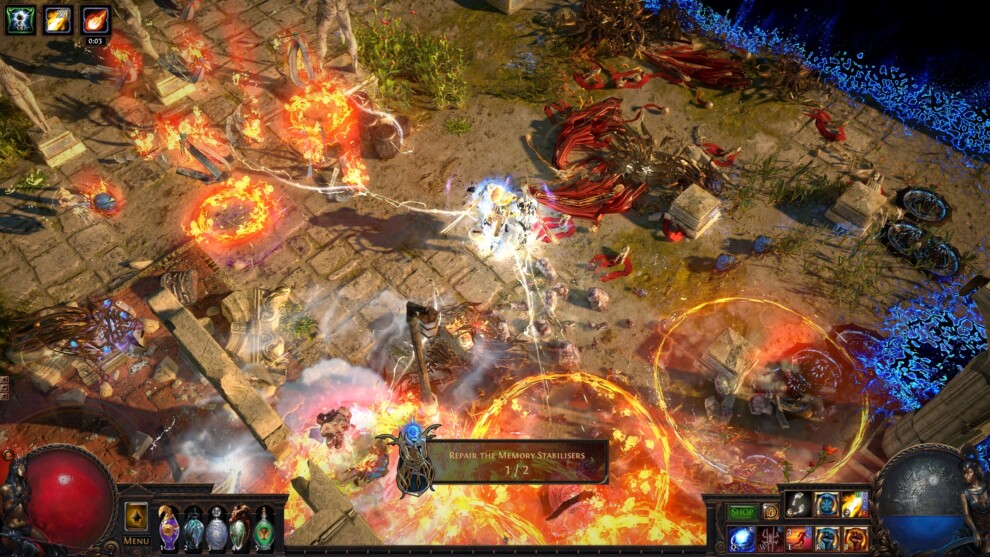In the tradition of top-down dungeon crawler hack-and-slash RPGs, Path of Exile, much like the other dark gothic fantasy game it’s often compared to, has a deep plethora of items. If you’re a newcomer to Wraeclast, it can be overwhelming and confusing. For that, here’s a short guide on POE Currency and beyond.
Each Item Has Its Purpose
There are many classifications for items. Thankfully, with the Path of Exile, it isn’t as many compared to other MMOs, which has loot and catalysts.

In Path of Exile, items are simply under any of the four categories:
- Gear – items that you equip for offensive and defensive potentials, as well as utility. To make the game’s customization system possible, gear has sockets and links.
- Flasks – instead of potions filling up your inventory, Grinding Gear Games has opted for flasks, which are refillable bottles that produce life and mana recovery as well as other utility effects depending on the flask.
- Jewels – items that are socketed into the passive skill tree for bonus attributes and effects.
- Skill Gems – these are socketed in gear, and are further divided into two:
- Active skill gems – grants you usage of skills that deal damage to enemies or give supportive effects.
- Support gems – It changes properties of the active skills they’re linked with.
- Currency – mostly in the form of orbs, they are either used as currency in order for players to trade with one another, or used on the gear in order to modify their properties.
- Quest Items – as the name suggests, they are items related to the completion of quests.
Rarity Matters
Aside from their purpose/use, items can also be categorized according to rarity: Normal, Magic, and Rare. With gear, the higher the rarity, the more and the better the affixes gear can have, making them an overall better gear.
While magic and rare gear can be obtained as loot, you can also get them via the following POE currency:
- Orb of Transmutation – turns a normal item into a magic one
- Orb of Alchemy – turns a normal item into a rare one
- Regal Orb – turns a magic item into a rare one
However, if you’ve just begun playing, it’s recommended that you save the rarity-altering orbs that you’ll be getting early on. Either you wait for better gear at the endgame, or go to POE trade for better gear instead of dungeon-crawling and relying on RNG.
Jewels are also divided into rarity tiers. However, unlike gear, you cannot modify them and in turn, give them better bonuses.
Unlike Any Other
Other than the three rarity tiers, there is Unique, which is an entirely different category in itself. POE Uniques are not harder to find than rare items, and many of them don’t offer better effects. However, they have specific names, and with them are specific affixes. Some of these suffixes are unique and can’t be found on any other item.
Due to the nature of their affixes, certain Unique gear serves as the core gear of certain builds. So if you find them, either you sell them, especially if you got a Unique item that is indispensable for a particular popular build, or makes that build yourself. If you’re lucky enough, then maybe you’ll find a Unique gear that is meant for the exact build you’re running!
This is merely a bird’s eye view of the everyday items in Path of Exile. Still, it’s as good a place to start as any. For a more in-depth understanding of them, reading guides can only get you so far–you’ll have to keep on playing the game and learn by experience how important they are in your life in Wraeclast.




